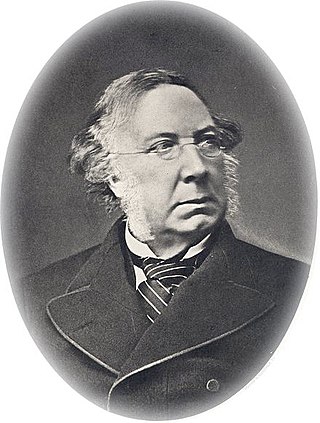| Volume | Year | Author | Title |
|---|
| I | 1826 (3 vols.) | Basil Hall | Voyage to Loo-Choo and other places in the Eastern Seas in the Year 1816 [8] |
| IV | | Hugh Murray | Adventures of British Seamen [9] |
| V | | Walter Scott, introduction | Memoirs of the Marchioness of La Rochejaquelein [9] |
| VI (2 vols.) | 1827 | Andrew Crichton | Converts from Infidelity [10] |
| VIII (2 vols.) | 1827 | Michael Symes | An Account of an Embassy to the Kingdom of Ava in the Year 1795 [11] |
| X | 1827 | George Moir | Table Talk, or Selections from the Ana [9] (i.e. -ana) |
| XI | | | Perils and Captivity [9] |
| XII | | Henry Glassford Bell (editor) [12] | Selections of the Most Remarkable Phenomena of Nature [9] |
| XIII (2 vols.) | 1827 | John Martin | An Account of the Natives of the Tonga Islands |
| XV (2 vols.) | | Robert Chambers | History of the Rebellions in Scotland in 1745, 1746 [9] |
| XVII | | Orlando W. Roberts | Voyages and Excursions in Central America [9] |
| XVIII (2 vols.) | | Friedrich Schiller
George Moir, translator | Historical Works [9] |
| XX (2 vols.) | | Richard Thomson | An Historical View of the Manner, Customs, Literature, &c., of Great Britain [9] |
| XXII | 1827 | | General Register of Politics, Science and Literature [9] |
| XXIII | | John Gibson Lockhart | Life of Burns [9] |
| XXIV (2 vols.) | | Henry Glassford Bell | Life of Mary, Queen of Scots [9] |
| XXVI | | Francis Wrangham | Evidences of Christianity [9] |
| XXVII (2 vols.) | | Adam Neale (two parts) [13] | Memorials of the Late War [9] |
| XXIX (2 vols.) | | John Russell (brother of James Russell) [14] | A Tour in Germany in 1820, 1821, 1822 [9] |
| XXXI (2 vols.) | | Robert Chambers | History of the Rebellions in Scotland, under Montrose and Others, from in 1638 till 1660 [9] |
| XXXIII (3 vols.) | | Christophe Guillaume de Koch
Andrew Crichton (translator) | History of the Revolutions in Europe [9] |
| XXXVI (2 vols.) | | John Dundas Cochrane | A Pedestrian Journey through Russia and Siberian Tartary [9] |
| XXXVIII | | Derwent Conway | Narrative of a Journey through Norway, Sweden and Denmark [9] |
| XXXIX | | John Smythe Memes | History of Sculpture, Painting, and Architecture [9] |
| XL (2 vols.) | | Edward Upham | History of the Ottoman Empire [9] |
| XLII | 1829 | Robert Chambers | History of the Rebellions in Scotland under the Viscount of Dundee and the Earl of Mar in 1689 and 1715 [15] |
| XLIII (2 vols.) | | John Parker Lawson | History of the Most Remarkable Conspiracies Connected with European History [9] |
| XLV | | Gilbert White | The Natural History of Selborne [9] |
| XLVI | | J. D. Sinclair | An Autumn in Italy [9] |
| XLVII (2 vols.) | 1829 | Michael Russell | Life of Oliver Cromwell [16] |
| XLIX | | Telesforo de Trueba y Cosio | Life of Hernan Cortes [9] |
| L (2 vols.) | | Henry Stebbing | History of Chivalry and the Crusades [9] |
| LII | | William Cooke Stafford | History of Music [9] |
| LIII (2 vols.) | 1830 | John Donald Carrick | Life of Sir William Wallace of Elderslie [17] |
| LV (2 vols.) | | Robert Chambers | Life of James the First [9] |
| LVII (3 vols.) | 1830 | Fauvelet de Bourrienne
John Styles Memes (translator) | Memoirs of Napoleon Bonaparte [18] |
| LX (2 vols.) | | Thomas Keightley | History of the War of Independence in Greece [9] |
| LXII | | Telesforo de Trueba y Cosio | History of the Conquest of Peru by the Spaniards [9] |
| LXIII (2 vols.) | | Alexander Sutherland | The Achievements of the Knights of Malta [9] |
| LXV | | James Augustus St John | A Journal of a Residence in Normandy [19] |
| LXVI (2 vols.) | 1831 | Derwent Conway | Switzerland, the South of France and the Pyrenees in MDCCC.XXX |
| LXVIII | 1831 (4 vols.) | Alexander Wilson
Charles Lucian Bonaparte
Robert Jameson (editor) | The American Ornithology [20] |
| LXXII | 1831 | John Styles Memes | Memoirs of the Empress Josephine [21] |
| LXXIII (2 vols.) | 1831 | William Cooke Taylor [22] | History of the Civil Wars in Ireland |
| LXXV | 1832 (2 vols.) | Thomas Brown | The Book of Butterflies, Sphinxes and Moths [23] |
| LXXVII | 1832 | Robert Mudie [24] | A Popular Guide to the Observation of Nature |
| LXXVIII (2 vols.) | 1833 | Cyrus Redding | A History of Shipwrecks and Disasters at Sea [25] |
| LXXX | 1834 | Thomas Brown | The Book of Butterflies, Sphinxes and Moths, vol. 3 [26] |





